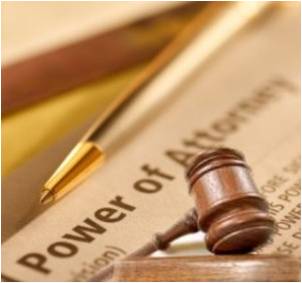Our top-rated tool is like working with a professional every step of the way.
A power of attorney, also known as a letter of attorney, is used to give another party authorization to act on behalf of someone in affairs relating to legal matters. The person authorized to make decisions is known as the agent or the attorney-in-fact. The party who is authorizing the agent or attorney-in-fact is referred to as the principal, donor, or grantor.
The power of attorney form allows the agent or attorney to make financial decisions, gifts of money, health care decisions, or even guardianship decisions. The person who is representing the grantor may be entitled to receive payment for their services as an agent. However, the agent could also be a family member, such as a spouse, adult child, family friend, or other relative.
Click here to get started now!
“I am very pleased with FormSwift products and have already recommended them to a number of my friends. The ease of creating documents has saved me countless hours.”
-Carrie L.
"I love FormSwift. There have been so many new documents added since first signing up. They walk you through every step. Great job and thanks for everything you guys do for making this happen."
-John M.
"FormSwift was very easy to use, even for someone who is not very tech savvy like me. Will use again."
-Phil T.
A power of attorney is a form that bestows certain powers bestowed upon an “attorney-in-fact” or “agent.” It enables said agent to make decisions for a principal person who is somehow incapacitated. There are various types of power-of-attorneys, and the laws governing change from state to state. However, here are a few general points.
What does a power of attorney form deal with?
A power of attorney form serves as a legal definition of the powers granted the agent. This can either be authority to deal with a specific issue, such as critical care treatment, or the power to handle all of the principal’s affairs. The former is called a “specific power of attorney” and the latter is called a “general power of attorney.”
Who is generally granted power of attorney?
An agent should be someone the principal trusts with life-altering decisions. This can be anyone, from a spouse or other family member to a trusted personal friend. It is not advisable to award power of attorney to anyone standing to benefit from a principal’s incapacitation. Despite its name, an attorney-in-fact does not need to be a licensed attorney.
What responsibilities does the agent have in upholding the tenets of a general power of attorney?
To ensure the agent adheres to the agreement, he or she must keep complete records of all actions and transactions made on the principal’s behalf. He or she must also verify, at the start of the agreement, that he or she fully understands all the terms outlined and the extent and limits of his or her responsibilities.
What responsibilities are generally assigned the attorney-in-fact?
A durable power of attorney form may assign the agent any number of responsibilities. Common ones include –
· Management of principal’s financial assets
· Making critical health care decisions, including the decision to begin, continue or cease medical procedures
· The making of a financial or other type of gift or donation
· Guardian election
Does the agent receive compensation?
Ordinarily, yes. The amount of payment is generally determined by the principal and included in the power of attorney document. If for some reason this does not happen, the election of payment amount falls to the court. There is a statute of limitations – the amount issued to the agent may never exceed a certain percentage of the principal’s total property value.
Other tips
For your own protection, it is important that your power of attorney form contain all important details and be written in clear, concise language. This will strengthen the document legally and prevent the agent from misusing his or her power.

A power of attorney (POA) is the legal equivalent of a trust fall. It is one of those documents you simply need to take very seriously. A POA is a document that dictates what will happen to you if, well, something terrible happens to you. You want to be sure that legally speaking, your provide for any eventuality. Whether you’re using a power of attorney template or going freeform, be sure to consider the following:
Who actually needs a POA?
The short answer is – anyone who is suffering from a terminal illness, lives alone and is scheduled for major surgery, leaving the country at time when big plans are in the works (such as the sale of property), or living alone should absolutely have one. Anybody else…really ought to get one. This is because dire circumstances may descend at any time upon anyone at any stage of their life.
That said when creating one, you need to be sure you take all the important legal parameters into account. I’ve detailed all of these below –
Different Types of POA
There are several levels of control you can ascribe your POA agent or “attorney-in-fact.” They are as follows:
General POA – The General POA handles financial transactions, business matters, settlements, and the hiring/firing of employees, among others. If you’re starting a new business, it is a really good idea to have a General Power of Attorney in place.
Special POA – If the attorney-in-fact you pick has a lot on their own plate, such as health or legal issues, you might want specify what powers he or she does and does not have. For example, you may have someone you wish to have handle debt collection or real estate issues, but not be responsible for your business. In this case, a Special POA is appropriate.
Health Care POA – A health care POA is the person responsible specifically for medical decisions. If you are terminally ill, in a serious accident, in a coma or otherwise incapacitated, your health care POA is empowered to oversee your treatment and dictate what happens to you. Note – This is not the same thing as a living will.
Durability Provision
If you become somehow mentally incompetent, due to old age, sickness, accident or other cause, and you want a general power of attorney form to go into effect, you should need to sign what is called durability provision. This provision essentially puts your POA into effect on your behalf should you be unable to make that decision. Be sure the durability provision dictates that you must be pronounced mentally incompetent by a medical professional, not just a friend or family member.
Have multiple attorneys-in-fact
This doesn’t mean you should have multiple attorneys-in-fact at once. This would get pretty confusing! However, you should have one primary agent and one or two backups listed on your POA, just in case something tragic happens to Agent #1. If you happen to be in possession of considerable wealth or extremely jealous friends, I suggest you choose your alternative POA agents wisely. You don’t want to turn your life into a Dickens novel by pitting rival confidantes against one another.
Instruct your agent to keep record of all actions
To ensure no wrong has been done on your behalf while your POA is in effect, make it a provision of the POA that the agent(s) must keep complete record of all transactions and decisions conducted under your name.
Be sure you certify your POA
This means distributing several copies, all signed by you and a notary public . A POA cannot go into effect if it is not certified.

No one likes planning for worst-case scenarios , but it’s a worthwhile task. A power of attorney is a form that passes the power to make life-changing decisions from you to another individual. It’s a way of preparing for disasters such as extreme illness, traumatic or fatal accidents and psychological instability caused by age or mental illness. The content of a POA form varies wildly from situation to situation. However, the basic components are as follows.
Details of involved parties
In this section, you should include the full legal names and addresses of the principle and the agent. The principle is the person giving the power of attorney, the agent, or “attorney in fact” is the person receiving it.
Types
The next thing you need to do is determine what kind of power you are ascribing. There a few basic types of power of attorney you can assign.
General
This type of agent can perform duties ranging from financial transactions to life-altering medical decisions. When you assign general power of attorney, you are essentially giving someone the right to take over all aspects of your life in the event that you become incapacitated. A general power of attorney should be someone you trust completely.
Specific
This type of agent is limited to fulfilling certain responsibilities, which are detailed in the form. Oftentimes a specific power of attorney grants someone the right to manage finances but not medical issues, or vice versa.
Health Care
This agent is specifically responsibly for making healthcare decisions. This is the person entrusted with decisions involving life support, drastic medical procedures, etc.
Durability Clause
This is a common clause in durable power of attorney forms. It stipulates that your chosen agent assumes responsibility in the event that you become incapacitated. The nature of said incapacitation must be detailed elsewhere in the form.
Statement of terms under which power of attorney is assumed
The details of this are more or less up to you. You could will that your POA comes into effect when you go into a coma, suffer other traumatic brain damage, have reached a certain advanced state of degenerative illness, or experienced a psychotic break. Tailor this to suit your personal needs.
Signatures
Your POA form should be signed and dated by you, the agent to whom powers are being ascribed and a witness. It should also be dated.